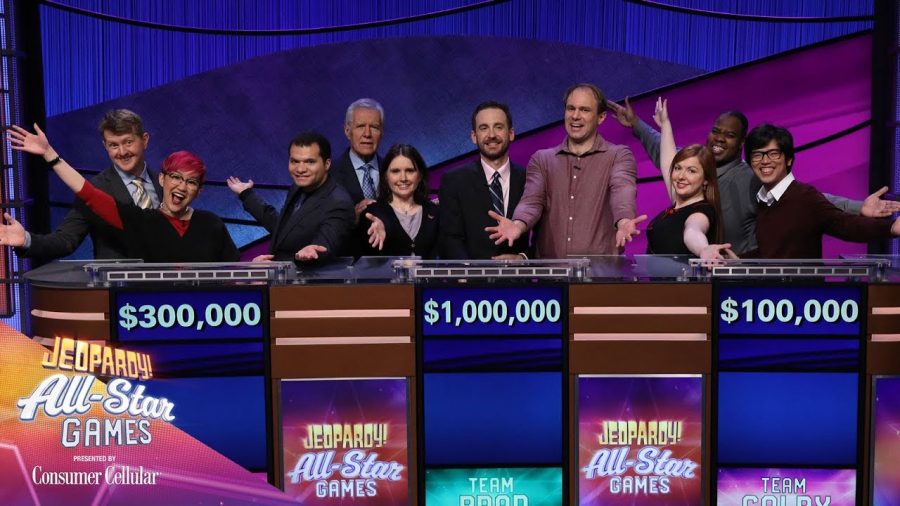Jeopardy! Contestants Withstand Confusing Setup of All-Star Games
Jeopardy! devoted a total of 10 episodes from Feb. 20 to March 5 to the first ever Jeopardy! All-Star Games,
reuniting 18 of the best-of-the-best contestants of all 35 seasons. These games were full of humor—when the contestants roasted their opponents in interviews and made side comments between questions—and unbeatable intellect, and they were structured in a very competitive way almost like in sports, as the fans had opportunities to play along from their homes in fantasy leagues.
While watching the contestants compete in teams for the reputation as the best Jeopardy! players in all of the show’s history was as engaging as a show like “Survivor,” the format was too confusing for fans to follow, especially for the majority who watch episodes sporadically and not sequentially.
The All-Star Games was a team tournament, in which six players were team captains, each with two other players on their teams—which were chosen from a draft back in the fall. Brad Rutter, who is the winningest game show contestant in history with $4.5 million, led his team to the $1 million victory with his dexterous signaling device skills and quick reaction times to clues.
For every game, three team members were assigned to cover one round each (single, double or final Jeopardy!). While this tag-team format was somewhat engaging, it would have been even better for the players to have a chance to collaborate more as a team.
One of the more interesting aspects of these games was learning about the preparation, such as how the contestants, some who live spread out all throughout the country, practiced for the games together. Brad’s team, for example, sent each other charts with Jeopardy! statistics and communicated via the internet. The behind-the-scenes showed briefly how the teams made the wagers and assigned people to each round.
These little clips were great to watch but were too short in between rounds.
In fact, the whole tournament was spread out too long just so that the episodes could all be a rigid 30 minutes, which was so short that, at times, the whole episode consisted of just one round. Because these games were so special, they should have been a special on their own: one or two hour-long episodes that would flow better and be less confusing.
Unlike the College, Teacher and Teen Tournaments, the Jeopardy! All-Star Games should not become an annual event; rather, despite its confusing format, it should be recognized as a one-time special event in Jeopardy!’s history that may not happen again for many years

Katie Hurwitz, class of 2019, is the Online Managing Editor and Entertainment Editor for The Rebellion. At school, Katie is involved in National Honor...













